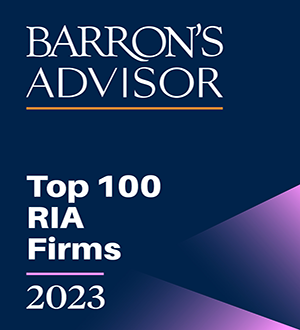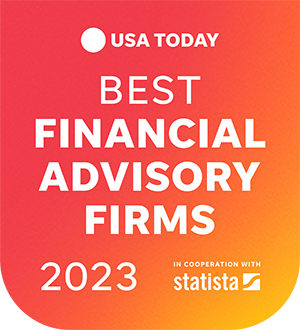Market View: June-July 2024
By Argent Wealth Management, LLC on June 4, 2024
Conclusion
- The S&P 500 went down over 5% in April from it’s all time high. Sentiment briefly got pessimistic, then recovered along with the S&P 500 which reached news highs in May.
- Inflation is on a downward trajectory, but likely to remain stickier than expected. This is due to a strong economy.
- With low odds of a recession, the bull market is likely to continue.
- Reaching new highs after a pullback is a positive sign.
- The main risk is re-inflation, which could force the Fed to raise rates more.
- A correction over 10% would be likely in that scenario.
- This risk’s overhang could keep markets volatile in the coming months.
Corrections
- It has been 23 days since the S&P 500 corrected 5% or more.
- It has been 142 days since the S&P 500 corrected 10% or more.
- In long-term bull markets, which we have been in since 2009, the market averages 331 market days without a 10% or more correction.

Stock Market Sentiment
- In the April-May Market View, we noted “a correction in the 5-10% range would likely cause trading sentiment to drop into it’s extreme pessimism zone, where the S&P 500 averages 24.99% a year since 2006.”
- This is exactly what happened (denoted with a brown arrow).
- The market rebounded swiftly, and sentiment did too.
- This behavior between sentiment and the stock market is typical in a bull market.

Presidential Cycle
- The chart on the left shows what has happened to the S&P 500 on average in an election year.
- In an election year, it is typical for the market to correct and bottom in May before rallying into the summer.
- There is alignment between the four-year cycle and market behavior noted on the previous slide.

Recession Odds Low
- Despite the potential for a correction, a recession is unlikely.
- Major drawdowns, or bear markets, usually occur when the odds of a recession are high and increasing.
- For example, the S&P 500 was down about 25% between January and October 2022.
- A recession did not occur, but the odds increased dramatically over that time.
- This model is based on Composite Leading Indicators created by the OECD for 35 countries.

Economy Remains Strong
- There remains 1.3x the number of job openings per unemployed in the United States.
- Companies are looking to retain and hire new employees as they invest and grow.

Consumer Health
- The financial obligations ratio (which includes debt, vehicle leases, rent, insurance, and property taxes) is below the historical average.
- Consumption is about 70% of GDP in the U.S., and the consumer is in good shape.

Credit Conditions
- Despite higher interest rates, the availability of credit to consumers and businesses is favorable.
- Credit is available to expand your business or buy a home.
- This measure would likely be on a downward trajectory if a recession was imminent.
- The credit conditions index is comprised of spread, delinquency, debt service, debt capacity, and lending standards indices.

Inflation
- The strength of the economy, however, is the very reason inflation has remained stickier than expected.

The Federal Reserve
- Stickier than expected inflation has decreased how much investors expect the Fed to lower interest rates this year.
- This is the consensus reason the stock market corrected over 5%. Higher for longer interest rates increases the hurdle rate to invest in projects, or homes potentially leading to a slowdown in the economy.
- Why did the market recover?
- One possible explanation is that Investors are in a win-win. A strong economy may keep inflation elevated, but that means a recession is unlikely.
- If the odds of a recession increase, it will likely be due to consumption falling faster than expected. In that case, the Fed can lower rates from 5.25-5.50% faster than is currently expected, supporting the stock and bond markets.

History of Bull Markets
- With odds of a recession low, and investors in a win-win situation, it is likely the bull market will continue.
- What do typical bull markets look like?
- The mean for all bull markets is an 85.9% gain over 576 market days.
- The Dow Jones is up about 35% over the past 400+ market days.
- Historically, long-term bull markets, which is what it looks like we are in today, returned about 105% on average over 751 days.

Presidential Sentiment
- Many are concerned about the election.
- Unless the mood about the president is extremely pessimistic, which often coincides with external economic shocks (see extreme pessimism during 2008 financial crisis), pessimism about the president isn’t bad for the stock market.
- Note: Prior to 2009 there was more variation in the general public’s mood about the President. It has been in and around the pessimism zone for much of the last 15 years.

Sign up to receive more information about Argent's Services and Solutions.
Argent Wealth Management, LLC is a group comprised of investment professionals registered with Hightower Advisors, LLC, an SEC registered investment adviser. Some investment professionals may also be registered with Hightower Securities, LLC (member FINRA and SIPC). Advisory services are offered through Hightower Advisors, LLC. Securities are offered through Hightower Securities, LLC.
This is not an offer to buy or sell securities, nor should anything contained herein be construed as a recommendation or advice of any kind. Consult with an appropriately credentialed professional before making any financial, investment, tax or legal decision. No investment process is free of risk, and there is no guarantee that any investment process or investment opportunities will be profitable or suitable for all investors. Past performance is neither indicative nor a guarantee of future results. You cannot invest directly in an index.
These materials were created for informational purposes only; the opinions and positions stated are those of the author(s) and are not necessarily the official opinion or position of Hightower Advisors, LLC or its affiliates (“Hightower”). Any examples used are for illustrative purposes only and based on generic assumptions. All data or other information referenced is from sources believed to be reliable but not independently verified. Information provided is as of the date referenced and is subject to change without notice. Hightower assumes no liability for any action made or taken in reliance on or relating in any way to this information. Hightower makes no representations or warranties, express or implied, as to the accuracy or completeness of the information, for statements or errors or omissions, or results obtained from the use of this information. References to any person, organization, or the inclusion of external hyperlinks does not constitute endorsement (or guarantee of accuracy or safety) by Hightower of any such person, organization or linked website or the information, products or services contained therein.
Click here for definitions of and disclosures specific to commonly used terms.


